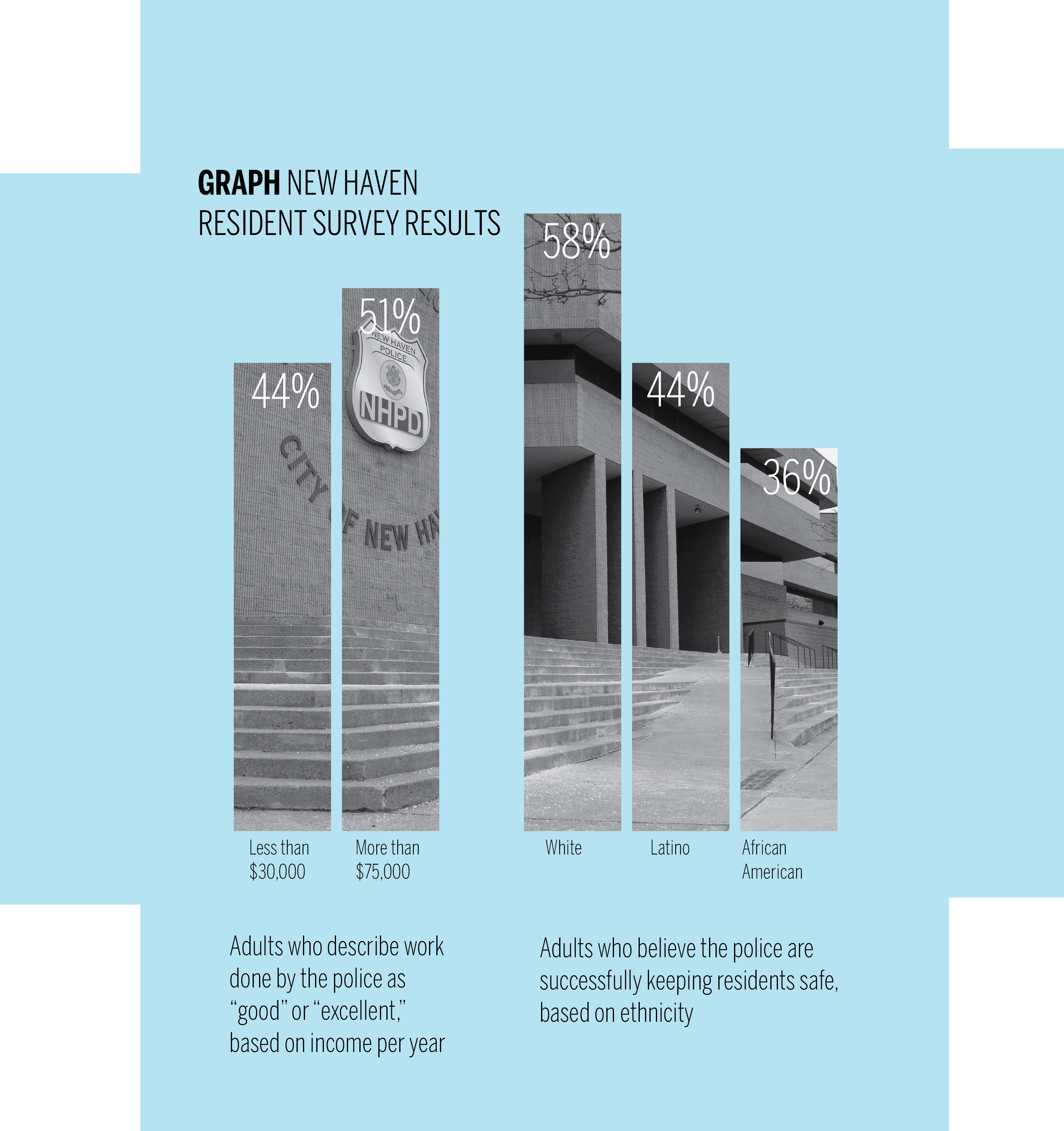
Perceptions of safety and community satisfaction in the Elm City are on the rise, but inequality remains intractable, according to a recent study conducted by local nonprofit analytics group DataHaven.
DataHaven released last month the results of a survey co-authored with public opinion polling organization Siena College Research Institute. The researchers partnered with more than 100 government and nonprofit organizations in Connecticut to conduct interviews about participants’ overall quality of life throughout the state. Of the 16,219 adults surveyed, 800 were New Haven residents. The proportion of New Haven residents who feel safe walking through their neighborhoods at night increased by 10 percent since 2012, reflecting the city’s falling crime rates.
“In this instance, when results of a survey seem to support existing crime statistics, the news is gratifying and encouraging,” New Haven City Director of Communications Laurence Grotheer said of residents’ increased perceptions of safety in New Haven.
There were just 13 New Haven homicides in 2014, a significant drop-off from the previous year, when 20 homicides occurred. 2014 also saw five fewer shootings, and the total number of gunshots known to have occurred in the city dropped from 227 to 178, the New Haven Register reported.
New Haven residents interviewed also reported greater satisfaction with the police and a decrease in food and employment scarcity. There was an 8 percent increase in the proportion of New Haven residents who reported that the police was doing a good or excellent job in 2015, as compared to 2012. However, satisfaction across the state varied greatly with wealth.
In Connecticut, overall satisfaction with the areas participants lived in dropped from 90 percent to 73 percent as individual salaries dropped from $200,000 to incomes below $15,000 per year.
According to DataHaven Executive Director Mark Abraham, 85 percent of the New Haven residents who felt safe walking at night in their neighborhoods also felt satisfied with where they lived. Of those that did not feel safe walking alone at night, 59 percent felt satisfied with where they lived.
“The results for this particular question on neighborhood safety help illustrate that perceptions of safety have a major impact on community health and well-being as a whole,” Abraham said. “The results can help community leaders work with residents to address the specific neighborhoods or streets that are perceived to be unsafe.”
Abraham said that while the percent of adults who believe the “job done by the police to keep residents safe” is “excellent” or “good” rises slightly as household income level increases, there is a larger racial disparity in the answers to this question.
44 percent of adults earning less than $30,000 per year and 51 percent of those earning $75,000 per year or more describe the work done by police as “good” or “excellent.” However, while 58 percent of white adults in New Haven believe the police is successfully keeping residents safe, only 44 percent of Latinos and 36 percent of African-American adults feel the same.
Grotheer said Mayor Toni Harp has made efforts to address violent crime in New Haven since she took office two years ago, including the development of City Youth Stat, an initiative to bring resources together for at risk youth. City Youth Stat is run in collaboration with the New Haven Police Department, the New Haven Fire Department, the New Haven Public School System, the Youth Services Department and various religious and nonprofit groups.
Grotheer said both Harp and the NHPD are committed to citywide community policing.
Nora McDonnell, a Westville resident who has lived in New Haven for over 26 years, said she thinks the city is “definitely improving.”
Although McDonnell said it is important to take precautions such as walking in groups and staying in familiar areas, she said she felt safe raising her children in the Elm City and likes the “little pocket” of New Haven that she lives in.
But not all residents interviewed shared McDonnell’s perspective. Twenty-year-old Kenshell Mitchell, who lives near Grand Avenue and has lived in New Haven all her life, said she believes the city has “gotten worse.” Although she said she felt safe in the city, she noted that there seems to be a lot more violence and added that it has become more difficult to find work.
New Haven has a median annual household income of $38,482.
Correction, March 30: A previous version of this article incorrectly stated that the average annual household income in New Haven is $82,393. In fact, the median annual household income in New Haven is $38,482.







